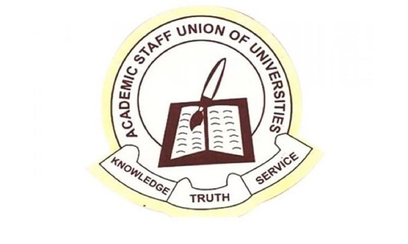EDUCATION

STRIKE: ASUU TO HOLD CRUCIAL NEC MEETING AS ACTION ENTERS SECOND WEEK
The Academic Staff Union of Nigerian Universities (ASUU) will today, Tuesday, hold a crucial National Executive Council (NEC) meeting to decide the next line of action as its ongoing strike enters the second week.
This comes after the union confirmed that the Federal Government’s Renegotiation Team, led by Alhaji Yayale Ahmed, presented a documented response to its demands, making offers on key issues.
In a strike bulletin issued on Monday, ASUU acknowledged progress in some areas, including the release of third-party deductions, payment of promotion arrears, mainstreaming of Earned Academic Allowances (EAA), the recovery of University of Abuja land, and the victimization of members at KSU, LASU, and FUTO.
DAILY POST gathered that ASUU members across various branches held congresses on Monday to vote on whether to continue or suspend the strike.
Although some progress has been made, early indications show that most branches voted for the continuation of the industrial action.
One ASUU official, who spoke on condition of anonymity, said:
“This Congress is taking place all over the nation because the NEC meeting will take place tomorrow (Tuesday).
Here in our branch, almost everyone was in support for the strike to continue. We’re just awaiting the NEC to make our position official.”
ASUU had earlier given the Federal Government a 14-day ultimatum to conclude and implement the renegotiation of the 2009 FGN/ASUU agreement and address other outstanding demands.
Meanwhile, the Nigeria Labour Congress (NLC) has warned the Federal Government to resolve ASUU’s grievances within four weeks or face a nationwide shutdown.
NLC President, Joe Ajaero, issued the warning in Abuja on Monday, saying:
“The four weeks is to enable the government address all outstanding issues, including the 2009 agreement with ASUU. Failure to do so will lead to an indefinite nationwide strike.”
Ajaero made the statement after a meeting with leaders of tertiary institution-based unions.
In a related development, Nduka Odo, a public affairs analyst and communications specialist at Peaceland University, Enugu, blamed the strike on what he called the government’s “long-standing passive attitude toward education.”
Odo criticized the neglect of lecturers and the persistent breach of agreements by successive administrations, saying:
“No serious nation treats its lecturers the way Nigeria does.
When you owe lecturers months of salaries and expect world-class performance, what message are you sending?
Until the government stops playing politics with education and honours its agreements, the cycle of strikes will continue.”
The outcome of today’s NEC meeting is expected to determine whether ASUU will extend its strike or suspend it pending further negotiations with the Federal Government.
"This represents a significant development in our ongoing coverage of current events."— Editorial Board









